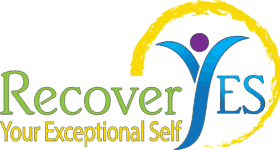Does addiction intervention work?
At some point when dealing with a loved one that is struggling with addiction, intervention may be the only apparent solution. The addict isn’t the only one suffering. So, the promise of intervention is to stop the addictive behavior and put everyone out of their misery.
 But, staging a successful addiction intervention isn’t easy. How do you avoid the mistakes that sabotage recovery?
But, staging a successful addiction intervention isn’t easy. How do you avoid the mistakes that sabotage recovery?
These 3 costly mistakes can be avoided with some planning and patience. And, if you’re going to the effort to stage an intervention wouldn’t you want to improve your chances of recovery success?
Mistake #1: Using the Ambush Strategy for Addiction Intervention
When we think of addiction intervention, it typically involves trapping the addict and forcing them into some sort of treatment program. If stopping the addictive behavior in the moment is your only goal, then this approach might have some short-term success.
Addiction recovery requires a much longer-term approach. And, if you understand the concept of cross addiction, it becomes clear that focusing on stopping today’s addiction of choice is extremely short-sighted.
People who enter in-patient treatment as a result of an ambush are understandably angry. This anger can take weeks to work through even with help from the most skilled treatment professionals.
The cost of in-patient treatment is considerable. Don’t risk wasting the first month in treatment working through anger resulting from using the ambush strategy for addiction intervention.
[responsive_video type=’youtube’ hide_related=’1′ hide_logo=’1′ hide_controls=’0′ hide_title=’1′ hide_fullscreen=’0′ autoplay=’0′]https://www.youtube.com/watch?v=JG_k1hRRL8Q&feature=youtu.be[/responsive_video]
Mistake #2: Playing the Shame Game Hoping to Avoid Intervention
So, if your ambushing the addict and forcing them kicking and screaming into treatment isn’t effective, there must be a better way. But, heaping shame on the addict isn’t the solution either. I promise you.
First, let’s review the difference between shame and guilt.
Guilt is based on the premise that while you’re a good person, you may have done something that is not in alignment with your values and best interests. Guilt can be healthy and useful for changing behavior.
Shame is based on the premise that you’re a bad person. Your behavior is understandable because you’re inherently bad. Shame is not constructive or helpful. If you already believe you’re a bad person, there’s no motivation to change. In essence, it’s hopeless.
Anyone living with an active addict knows how challenging it can be to manage emotional outbursts. It quickly becomes overwhelming to attempt to consistently use non-shaming language when dealing with the addict.
You’ll need some carefully crafted phrases that can be used in the heat of battle. To learn more about the ill effects of shame, the work of Brene’ Brown can’t be beat. This one is a great starting place.
[AMAZONPRODUCTS asin=”159285849X”]
Mistake #3: Attempting to Go It Alone without an Addiction Intervention Specialist
Addiction intervention can and does work. Unless you work with addicts on a regular basis, I can assure you that you are not well-equipped to stage an intervention without help. And, with the help of an addiction intervention specialist, you can avoid the weeks of wasted time in treatment just dealing with the resulting anger.
There is an alternative to the ambush strategy that is often referred to as a systemic approach to addiction intervention. This approach, when professionally facilitated, can become a healing opportunity for everyone involved.
Addiction is painful…not only for the addict but for anyone that is forced to witness it. Addiction often starts with a traumatic event but it leaves even more trauma in its wake. There is a lot of work to do to clean up the mess that has nothing to do with the addict entering recovery.
The addiction intervention specialist can help to get that process started. They are an invaluable resource.
If you are dealing with an active addict, I suggest that you find an addiction intervention specialist in your area. Spending a few minutes exploring options can eliminate years of ongoing pain. What are you waiting for?
